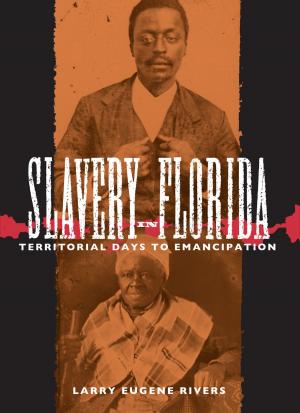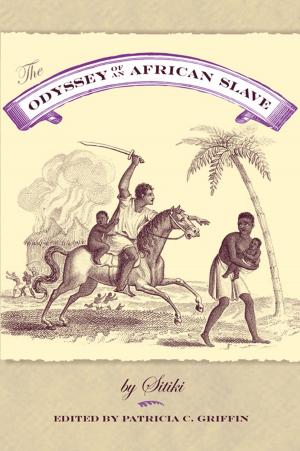Masculinity after Trujillo
The Politics of Gender in Dominican Literature
Fiction & Literature, Literary Theory & Criticism, Central & South American, Nonfiction, History, Americas, Latin America| Author: | Maja Horn | ISBN: | 9780813059907 |
| Publisher: | University Press of Florida | Publication: | November 23, 2016 |
| Imprint: | University Press of Florida | Language: | English |
| Author: | Maja Horn |
| ISBN: | 9780813059907 |
| Publisher: | University Press of Florida |
| Publication: | November 23, 2016 |
| Imprint: | University Press of Florida |
| Language: | English |
"Provides an insightful look at the persistent power of masculinism in Dominican post-dictatorship politics and literature."--Ignacio López-Calvo, author of God and Trujillo "The ideas about masculinization of power developed by Horn are important not only to Dominican scholarship but also to Caribbean and other Latin American students of the intersection of history, political power, and gendered practices and discourses."--Emilio Bejel, author of Gay Cuban Nation
Any observer of Dominican political and literary discourse will quickly notice the prevalence of certain notions of hyper-masculinity. In this extraordinary work, Maja Horn argues that these gender conceptions became ingrained during the dictatorship (1930-1961) of Rafael Leonidas Trujillo, as well as through the U.S. military occupation that preceded it.
Where previous studies have focused mainly on Spanish colonialism and the sharing of the island with Haiti, Horn emphasizes the underexamined and lasting influence of U.S. imperialism and how it prepared the terrain for Trujillo’s hyperbolic language of masculinity. She also demonstrates how later attempts to emasculate the image of Trujillo often reproduced the same masculinist ideology popularized by his government.
Through the lens of gender politics, Horn enables readers to reconsider the ongoing legacy of the Trujillato, including the relatively weak social movements formed around racial and ethnic identities, sexuality, and even labor. She offers exciting new interpretations of such writers as Hilma Contreras, Rita Indiana Hernández, and Junot Díaz, revealing the ways they challenge dominant political and canonical literary discourses.
"Provides an insightful look at the persistent power of masculinism in Dominican post-dictatorship politics and literature."--Ignacio López-Calvo, author of God and Trujillo "The ideas about masculinization of power developed by Horn are important not only to Dominican scholarship but also to Caribbean and other Latin American students of the intersection of history, political power, and gendered practices and discourses."--Emilio Bejel, author of Gay Cuban Nation
Any observer of Dominican political and literary discourse will quickly notice the prevalence of certain notions of hyper-masculinity. In this extraordinary work, Maja Horn argues that these gender conceptions became ingrained during the dictatorship (1930-1961) of Rafael Leonidas Trujillo, as well as through the U.S. military occupation that preceded it.
Where previous studies have focused mainly on Spanish colonialism and the sharing of the island with Haiti, Horn emphasizes the underexamined and lasting influence of U.S. imperialism and how it prepared the terrain for Trujillo’s hyperbolic language of masculinity. She also demonstrates how later attempts to emasculate the image of Trujillo often reproduced the same masculinist ideology popularized by his government.
Through the lens of gender politics, Horn enables readers to reconsider the ongoing legacy of the Trujillato, including the relatively weak social movements formed around racial and ethnic identities, sexuality, and even labor. She offers exciting new interpretations of such writers as Hilma Contreras, Rita Indiana Hernández, and Junot Díaz, revealing the ways they challenge dominant political and canonical literary discourses.















